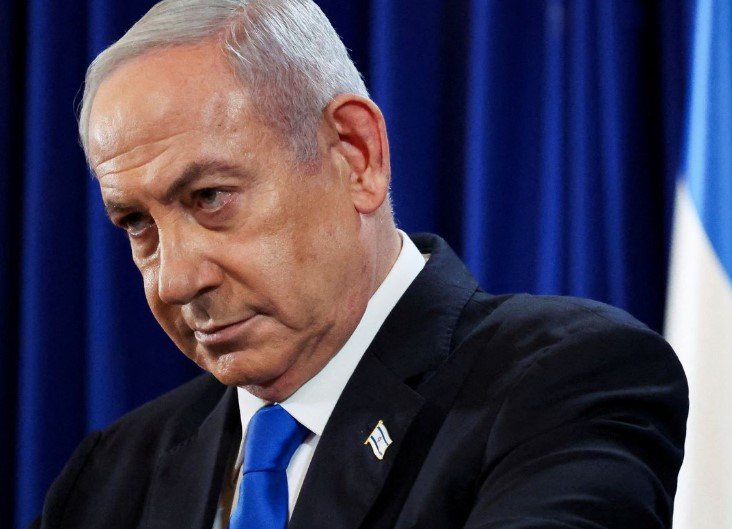Israeli police to send investigators abroad for high-profile probe as ex-campaign adviser stays away from Tel Aviv spotlight
Israeli police are packing their bags for Belgrade. And it’s not for vacation. The country’s top anti-corruption unit is flying to Serbia this week to interrogate Yisrael Einhorn, a former senior adviser to Prime Minister Benjamin Netanyahu, in a pair of scandals that have rocked the Israeli political and intelligence establishment.
It’s a rare and unusually dramatic turn in an already high-stakes investigation tied to classified military documents, a mysterious leak to German media, and alleged backdoor dealings tied to Qatar.
Aide-Turned-Adviser Abroad
Einhorn has been lying low—but not exactly underground.
For over a year now, he’s been living in Belgrade, where he works as an adviser to Serbian President Aleksandar Vučić. Since the Israeli investigation began last year, Einhorn hasn’t stepped foot back in Israel—a decision that’s raised eyebrows in Jerusalem.
And now, it’s raising legal questions too.
The Lahav 433 unit—Israel’s equivalent to the FBI—isn’t waiting any longer. According to Hebrew media reports, investigators will travel to Serbia to formally question Einhorn in person, after months of trying to summon him to Tel Aviv without success.
One sentence here.
This kind of overseas questioning is exceedingly rare in Israeli politics. But so is this case.

Two Explosive Investigations, One Name in Common
At the center of it all are two investigations—Qatargate and the IDF intelligence leak—and Einhorn’s name appears in both.
The first involves the alleged unauthorized transfer of classified Israeli military documents, one of which was eventually leaked to the German newspaper Bild. Police believe the document was intentionally passed along by someone close to the Prime Minister’s inner circle.
Einhorn, Jonatan Urich (a current Netanyahu aide), and Eli Feldstein (a former spokesman) are all key suspects.
They’re being investigated for possible breaches of national security laws, confidentiality violations, and conspiracy to distribute sensitive military information.
One sentence here.
Meanwhile, the Qatargate probe—still under partial gag order—reportedly examines informal financial or diplomatic dealings involving Qatari officials, allegedly without full cabinet oversight or legal sign-off.
Aide or Operator?
People familiar with the matter describe Einhorn as more than just a speechwriter or campaign fixer.
He was part of Netanyahu’s inner election team, someone who, according to one former Likud insider, “had access to absolutely everything” during the 2022 and 2023 campaigns.
He also maintained frequent contact with foreign journalists, regional officials, and communications advisors, the insider added.
Bullet point list of his roles and connections:
-
Former campaign strategist during Netanyahu’s reelection bids
-
Worked closely with National Security Council media staff
-
Allegedly involved in discussions with foreign press outlets
-
Currently advises Serbian President Aleksandar Vučić on communications
So, it’s not surprising that investigators want direct access.
“This isn’t a mid-level bureaucrat,” said a former Shin Bet official. “This is someone who saw a lot, heard even more, and—potentially—crossed some dangerous lines.”
Legal Tightrope and Diplomatic Dilemma
Flying a police unit abroad to interrogate a political consultant isn’t standard practice. It requires coordination with Serbia’s justice ministry, careful diplomatic messaging, and—perhaps most importantly—discretion.
Israeli officials are walking a fine line. On one hand, they don’t want to trigger a diplomatic spat with Serbia. On the other, the case is too big to ignore.
One sentence paragraph here.
“It’s awkward,” said a legal source familiar with Israel-Serbia relations. “But both governments want to avoid the appearance of hiding someone accused of leaking military secrets.”
So far, Einhorn has not been formally charged with any crime. But that could change depending on what investigators learn during this week’s questioning.
Netanyahu’s Silence Grows Louder
Netanyahu hasn’t said a word publicly about the Einhorn affair.
That silence is starting to sound a lot like damage control.
Privately, officials within Likud have acknowledged concern that the investigations could lead to a broader web of inquiries involving campaign finances, foreign lobbying, or intelligence manipulation.
The Prime Minister’s Office has also refused to comment on Urich’s involvement, despite the aide still being active in Netanyahu’s communications circle.
Here’s the most striking part: the Bild newspaper report that triggered the leak investigation referenced highly specific details about Israeli military readiness, raising fears that internal documents were being passed around for political or PR gain.
What Happens Now?
With police investigators landing in Serbia this week, the probe enters a new, more direct phase.
What happens next depends on three key factors:
| Key Variable | Potential Impact |
|---|---|
| Einhorn’s cooperation | Could accelerate charges—or soften legal fallout |
| Serbian cooperation | Will test diplomatic limits and mutual interests |
| New evidence from Bild | Could broaden the investigation’s scope entirely |
One sentence here.
Back in Tel Aviv, security officials remain on high alert for more leaks or media disclosures. One source said, “This isn’t just about one document. It’s about who’s in control of the country’s secrets—and who’s not.”
